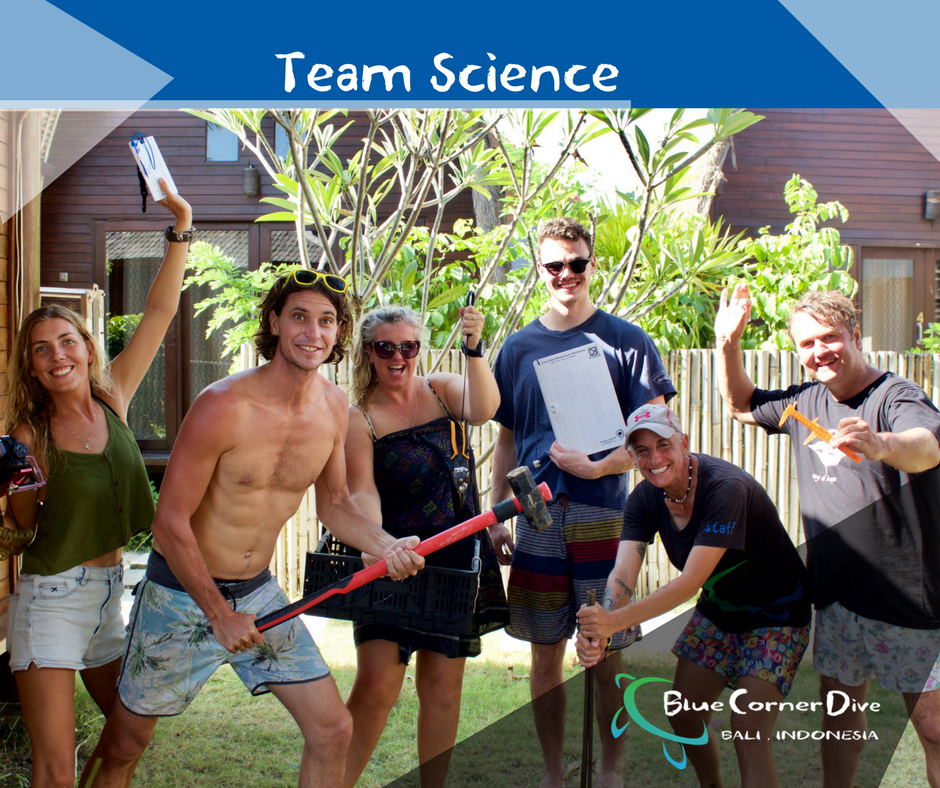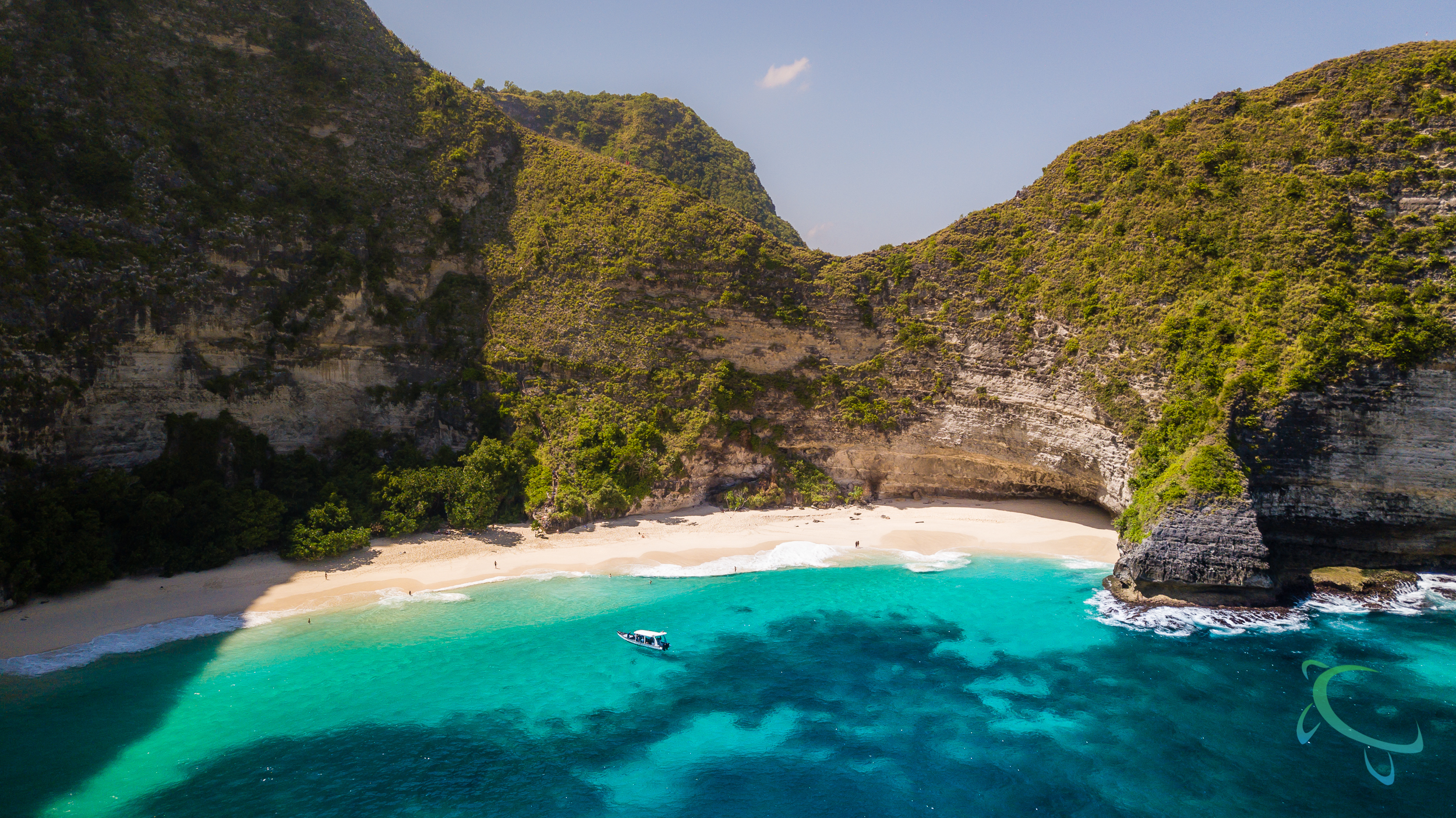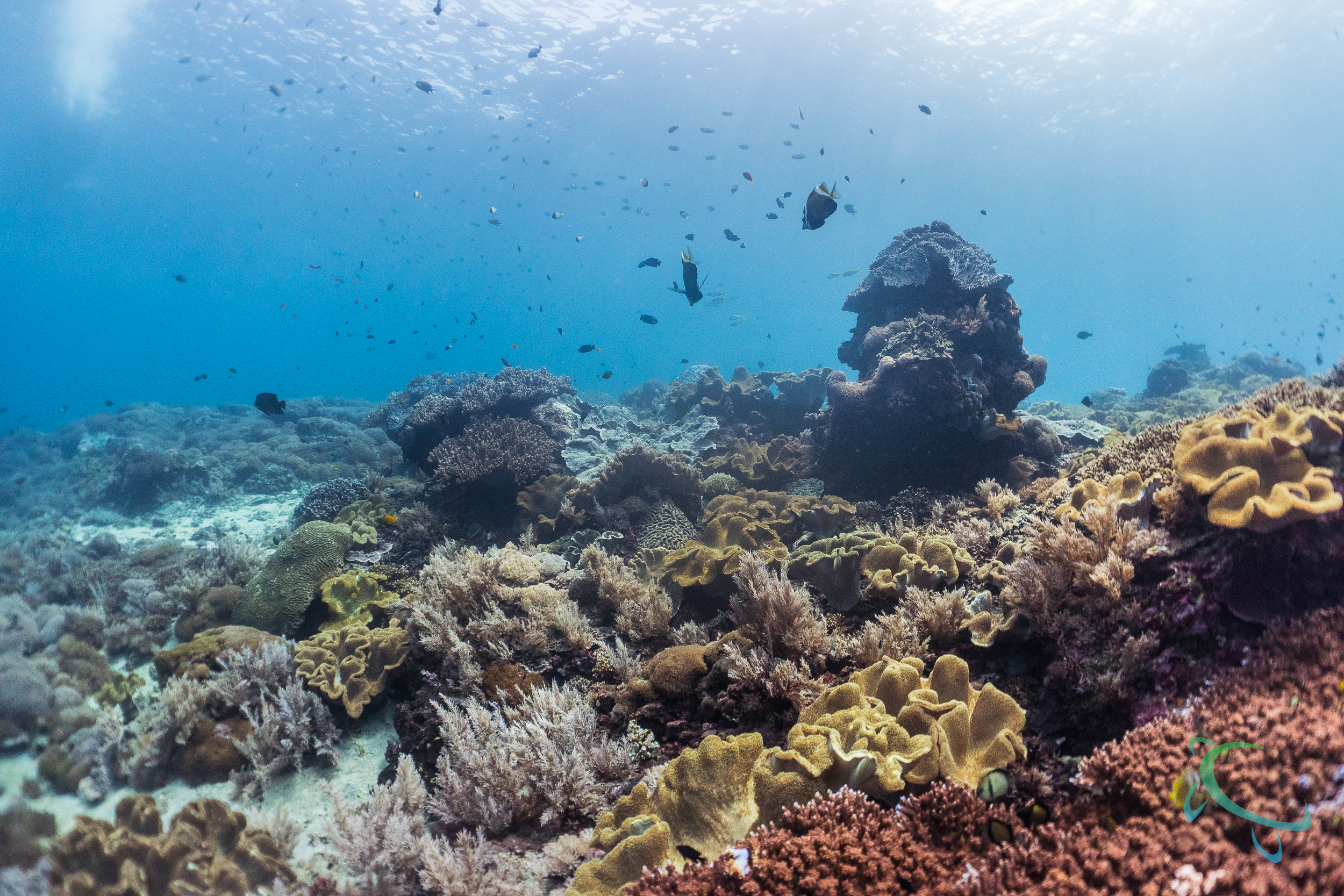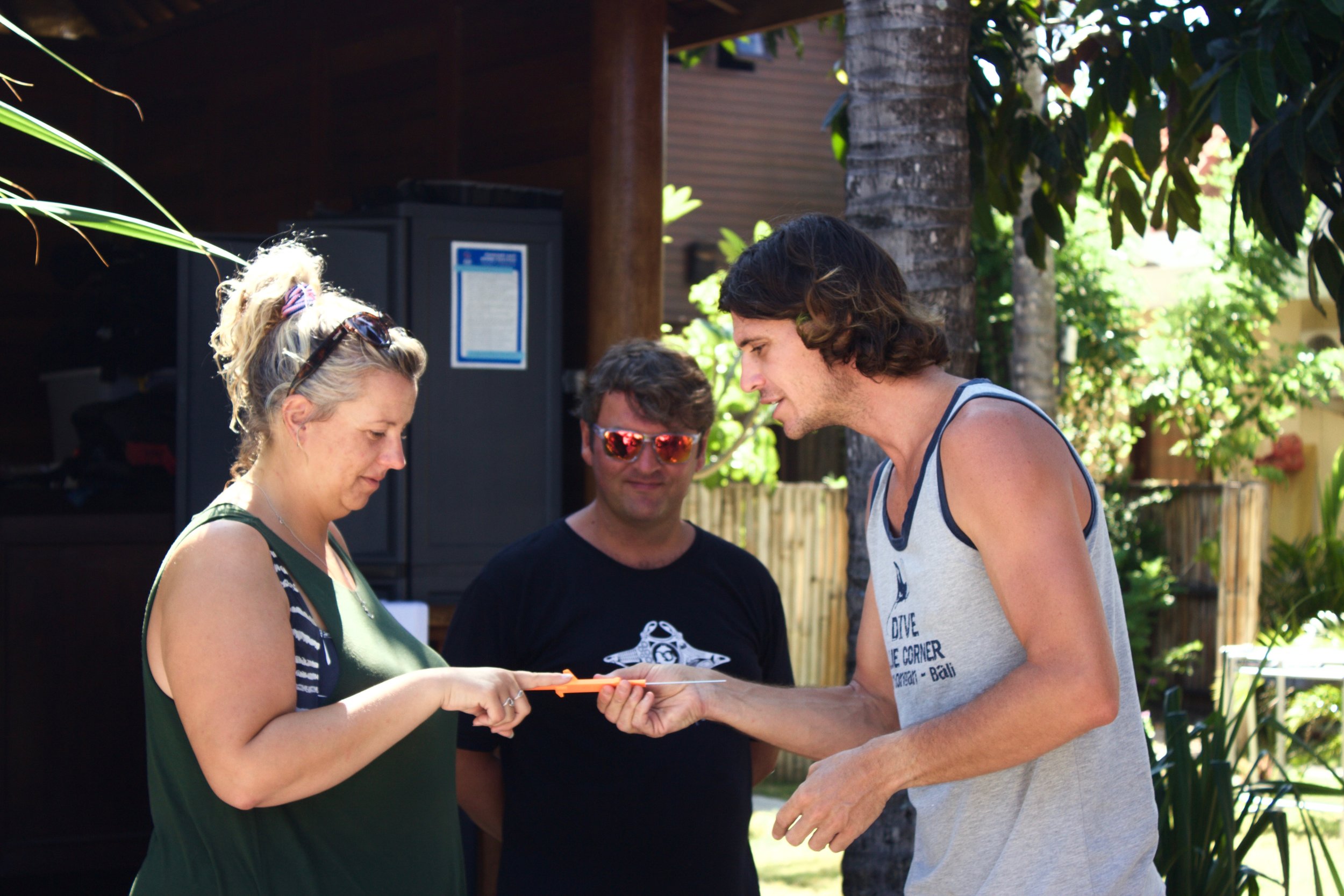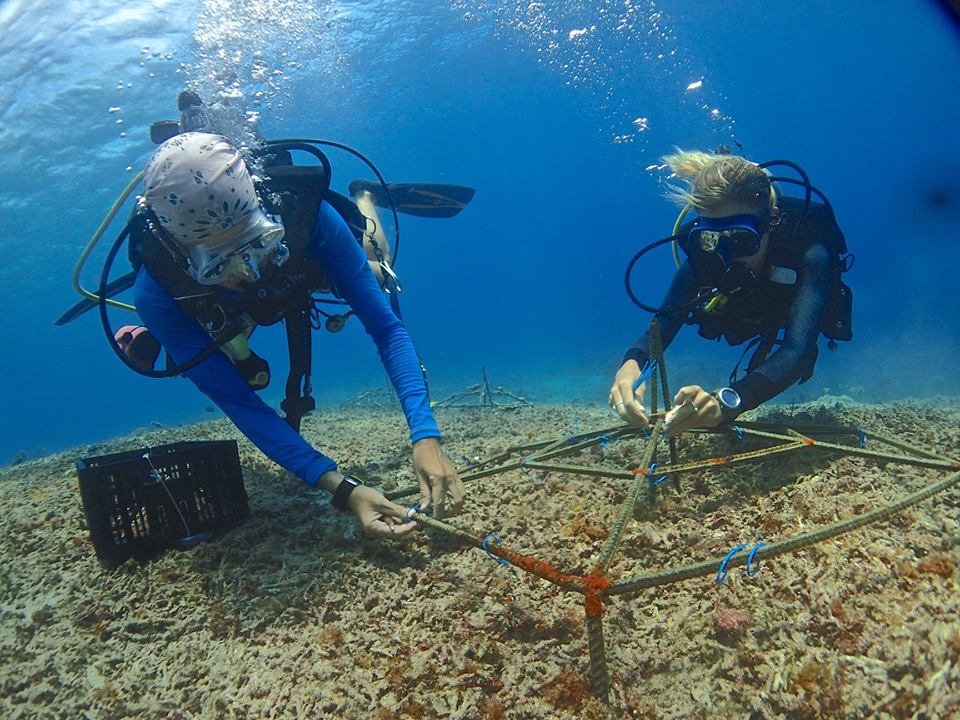Coral Reef Restoration in Nusa Penida
By now, most people know that coral reefs are under a severe ecological threat, mostly attributed to human activity. Climate change, overfishing, runoff and sedimentation are all menacing coral reef ecosystems’ ability to survive.
In the past year, we have seen great suffering from the Earth’s reefs. The obituary posted for the Great Barrier Reef brought international attention to the devastating mass bleaching in the largest living organism on the planet. But we are also collectively aware that if we continue ‘business as usual’, the Great Barrier Reef won’t be so great anymore.
Coral reefs are the building blocks of the ocean. They house tremendous biodiversity and produce provide us with bountiful economic wealth; from tourism to fishing to protection from severe weather.
It is so critical we start thinking about these pressures in the long term and not for short-term benefit as not only the environment but many people’s livelihoods are at stake!
The good news. (Wait you mean there’s good news in this????) All of the earth's environmental and even humanitarian issues are connected. Threats seems to come from every angle, but so do the solutions. Innovative technology combined with scientists, activists and most importantly passionate, conscious everyday people are the driving force of the conservation movement and there is much we can do to switch paths on our way to a greener future!
There are many things that we can do to help. Here we’re going to discuss a couple of ways Blue Corner is involved with coral conservation! But first, a bit of background as to what the heck is going on down there.
Coral Reef Systems: #Biology101
As most of us divers know, corals are animals. They are invertebrates and belong to the family Cnidaria. Mostly found in shallow, low nutrient tropical waters, these animals can only survive in very specific water temperatures. They need abundant sunlight in order for the symbiotic phytoplankton in their tissues to harness and convert sunlight energy into food for the coral! Neat. (Sidenote: This is why we have such a high tourism value on coral reefs; who doesn’t love to swim through 25 - 30 degrees Celsius, stunningly clear turquoise water fish playground??!)
So what’s the issue and why are the greenies freaking out?
Climate change
Most people nowadays have heard of the greenhouse gas effect; carbon dioxide and methane gases from burning fossil fuels and cow farts (yikes) are warming the atmosphere. Forests around the world, that usually act as carbon sinks, are being cut down for agricultural purposes needed to sustain the exponentially increasing human population (You can get a live update here). These excess gases are being absorbed by the ocean, both increasing Sea Surface Temperature (SST) as well creating more acidic oceans. And yes it’s happening because of human activity …. If you are in climate denial, please feel free to educate yourself here.
What does this mean for coral reefs?
Corals are amazing complex animals, yet exceptionally sensitive to changes in their surrounding environment. A change of 1 - 2 degrees Celsius in SST can cause coral bleaching; whereby the coral expels the nourishing phytoplankton living within its tissues. Repeated or sustained events of coral bleaching will result in the eventual death of coral … #notcool. Literally.
Overfishing
Is it estimated that by 2050, global fisheries may collapse due to current unsustainable fishing practices. Over 1 billion people rely directly on fish for their income and main protein source. Coral reef systems also rely on healthy fish populations as changes in the trophic system (where an organism sits in the food chain) can cause an overabundance of algae that smother reefs.
Shark fishing in Indonesia is a major threat to coral systems as sharks are vital apex predators to keep the reef fish in balance. There have been a few marine protected areas established in the area after a breakthrough in Manta Ray conservation, however many areas go unregulated and affect all levels of the oceanic ecosystem from the top predators to the macrofauna.
Runoff & Sedimentation
Remember, all rivers lead to the ocean. Agricultural land practices, including the use of pesticides and fertilisers, cause nutrient runoff into rivers and pollute our ocean systems. This increased amount of nutrients in our oceans lead to dead zones and algal blooms, which as we mentioned before, then smother reefs and cause reef mortality. Other threats include chemicals and pollutants in our everyday products, particularly sunscreens. These wash into and are absorbed by the ocean, all battering the reefs ability to withstand pressure (Stay tuned for more info about sunscreen + coral + what you can do to help next month!).
NOAA. How does climate change affect coral reefs? National Ocean Service website, https://oceanservice.noaa.gov/facts/coralreef-climate.html, 10/10/17
Should we be freaking out in Nusa Lembongan?
#Oceanography101
Luckily enough, we are situated in the convergence zone of two major oceans - the Pacific and the Indian. The reason we have amazing diving is that the currents and characteristics of the converging oceans draw species such as Molas and Mantas. Upwellings of deep cool water keep the ocean relatively cool and less at risk to mass bleaching events occurring elsewhere.
Seriously, we have an abundance of healthy coral still in existence!
Coral reefs are super resilient. They can withstand a lot of pressure and have been shown to bounce back to normal after a bleaching event. That being said, when faced with multiple threats in concurrence like raised Sea Surface Temperature AND excess nutrients/chemicals in the water, they are in danger of being killed completely. The above threats are imminent and conservation measures need to be addressed in order to keep the reefs stable!
Sooo, you ask, what can we do about it to ensure our reefs aren't further compromised?
Education and Ecotourism.
Be an eco-tourist. Check where you’re going first and ask yourself whether you are supporting a business that is eco and ethical. Choose an eco operator. Though do be careful - often the word eco is misused in company names, so you might need to do some research to see what sort of practices they may be involved in and guidelines they have around animal interactions. Never be afraid to ask.
Do we ride the turtles? Nope. Do we touch the mantas? Probably shouldn’t do that. Do we want our divers sending coral crumbling as far as the eye can see? Mmmmm...‘kay no. Do your certification with a company (ahem #BlueCorner) with excellent standards to have as minimal impact on the reef as possible.
We no longer serve any plastics in our restaurant because we try and make it as easy as possible for our customers to be ‘eco’ too and reduce our environmental footprint.
Ongoing long-term reef health monitoring & practical restoration work
Reef health monitoring is a vital way to measure impacts to reefs over time and space. These can be conducted by marine biologists and are performed to survey coral health and key indicator species.
Enter Andrew. Blue Corner’s co-founder, in-house Marine Biologist and ocean adventurer. He is in the early phases of testing for a major island-wide coral restoration project.
After his Master's project on the Great Barrier Reef, Andrew worked in environmental consulting as a scientific diver in Canada. His diving skills, in addition to his marine expertise, led him to start his own scientific diver program out of Blue Corner Dive. Components of the 4-week course he teaches range from marine ecology theory to advanced dive technique certifications necessary when working for environmental consulting agencies or NGO’s.
In addition to the scientific diver skills learnt during the course, participants get to be involved in his signature coral restoration project.
After taking part and seeing good results in similar coral projects (elsewhere), Andrew has designed his own study to see how these innovative coral growing techniques could be applied here in the Nusa islands.
Through a process called coral fragmentation, coral transplants are fixed to rebar structures by trained divers in damaged sites.
Over the next 6 months, he aims to study how coral growth is best aided in order to set up an islandwide mass coral restoration program. The goal is to establish a coral foundation in damaged areas to restore resilience and biodiversity that has been lost.
In this day and age, it is important to give back to the environment. As divers, we get to experience the total epic-ness of life underwater. And whether we like it or not, our livelihoods and business also depend on, not only surviving but thriving coral reef ecosystems.
Andrew’s project and Scientific Diver Course allows him to share the knowledge and skills he has attained to help save coral reefs and equip other divers with the skills needed to help in the journey towards sustainability.
If you are interested in learning more or becoming a part of the #teamscience feel free to inquire at info@bluecornerdive.com.
